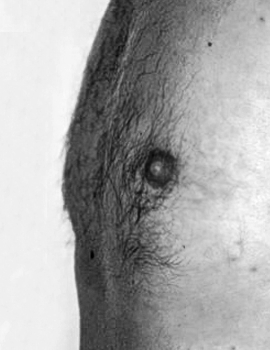Book puts hard word on men's cancer fears
 Every week in Australia, three men will be diagnosed with male breast cancer.
Every week in Australia, three men will be diagnosed with male breast cancer.
In 2014, it was estimated that about 15,270 Australian women were diagnosed with breast cancer and the annual incidence of men is about 150 or 1 per cent of all breast cancers.
Although male breast cancer is rare, experts say it is still vitally important to talk about it.
The latest statistics show that in 60 per cent of men diagnosed with breast cancer, the cancer had already spread beyond the breast (to adjacent lymph nodes or other parts of the body) compared to 45 per cent of females with breast cancer.
According to Professor John Boyages, Professor of Breast Oncology, at the Faculty of Medicine & Health Sciences at Macquarie University, large differences on how early male breast cancer is detected compared to female breast cancer is a contributing factor in differences in survival rates between men and women with breast cancer.
Professor Boyages says that for many men with breast cancer, the diagnosis is delayed because of lack of awareness by the community as well as health professionals about the rare condition.
“I have seen many patients who have seen their doctor with a lump or a discharge from their nipple, to be told that it was a fatty lump or ‘man boobs’ or enlarged tender breasts due to a hormone imbalance or medications,” Professor Boyages said.
Lack of information aside, another problem with early detection in men is embarrassment.
Research has shown that men with a breast lump often associate this with being feminine and are often treated differently by health professionals.
Even though men can easily have a mammogram, this is often viewed as a female test and there is often reluctance for a man to attend a breast clinic.
“Earlier detection means better survival. If a man finds a lump in their breast see your general practitioner as soon as possible and seek a second opinion if no tests are ordered,” Prof Boyages said.
“It’s vital that men have as much information as possible to ensure they get the best conventional treatment but also knowing what they can do for themselves.”
He says he hopes to help break down this stigma in his new book, the first book on breast cancer dedicated to men.
More details on Professor Boyages’ new book – Male Breast Cancer: Taking Control – is available here.







 Print
Print